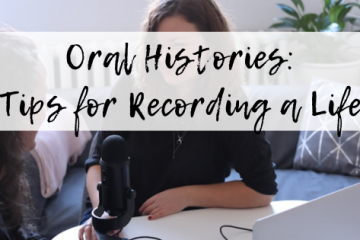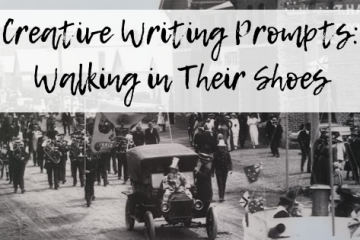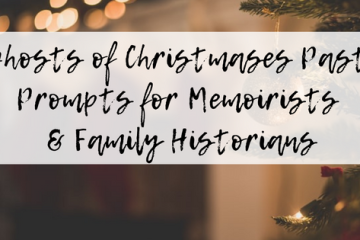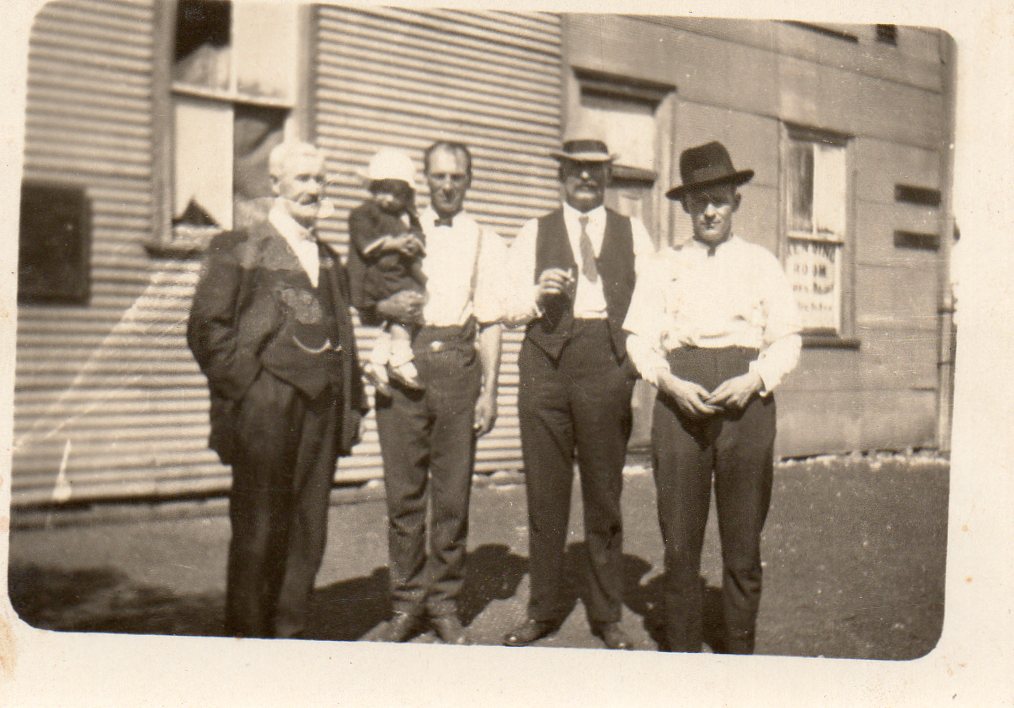
I confess I’ve had my doubts about Facebook. It wasn’t just the privacy issues; when my husband first joined years ago, I just couldn’t see the point.
Then a couple of things happened. The first was that I became involved in a group of HeartKid mamas, and social media seemed a great way to stay connected, and support each other in between our monthly coffee ‘n’ chats. This was followed with a wish to reconnect with high school friends – in those pre-social media days, we’d eventually lost contact after dispersing to university and jobs far away from our isolated mining town. So, adjusting my privacy settings as high as possible, I finally signed up.
Much more recently, though, I’ve discovered another wonderful corner of Facebook: other family historians. This online network has offered me more opportunities to trace my ancestors, here in Australia and across the world. I’ve seen a generous and supportive community emerge – a fabulous antidote to much of the ugliness I’ve also witnessed on social media.
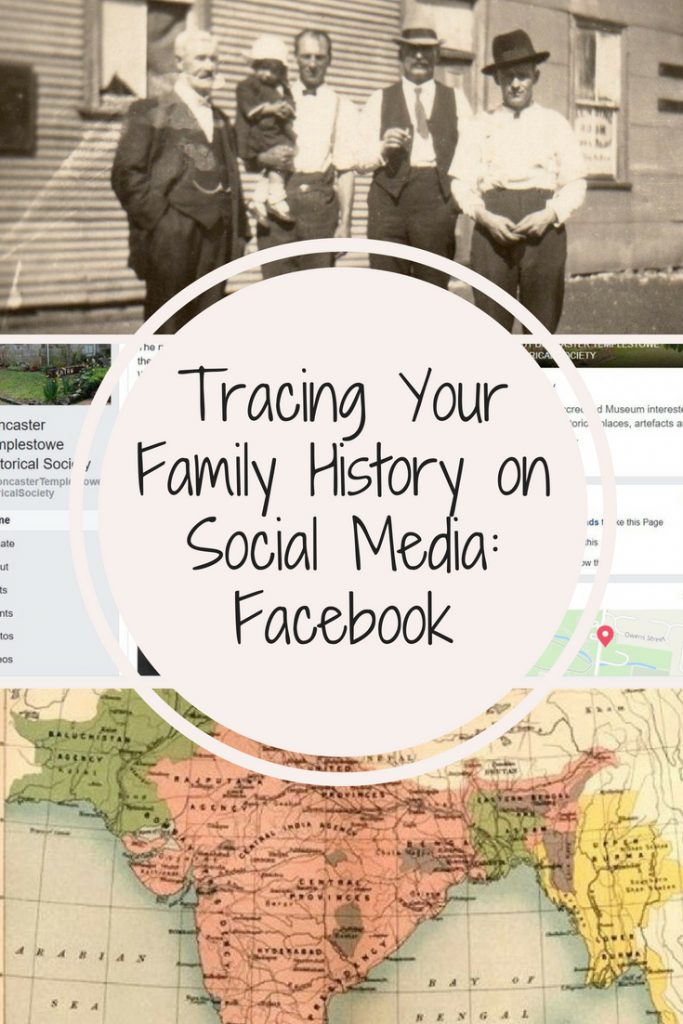
Facebook pages and groups
When it comes to family history, both Facebook pages and groups can offer you insights and information about your ancestors. As I mentioned in my previous post, you won’t necessarily find direct links to long lost cousins, although it has been known to happen. But it may lead to discoveries about places in which your ancestors lived, that country’s culture, contextual and social history, and images of particular time periods.
A Facebook page is set up by a person (or team of people), who will post interesting information and links. These pages are public, and anyone can like and follow the page. Although you can comment, you’re limited in what you can post yourself.
A group, however, is based on mutual contribution. You can post useful links you find, and ask questions, including requesting help about where to find certain information, or even how to decipher a document. Facebook groups can be:
- public – anyone can search for the group and see all of the discussions
- closed – anyone can search for the group, but has to request to join. Only people within the group can see what is discussed.
- secret – you have to be invited by one of the admins of the group, and you have to first be FB friends for this to occur. The group won’t be found through a search on Facebook.
Useful Search Terms
With both pages and groups, there are a number of terms that seem to reoccur in the names of Facebook pages and groups. Combining these terms with a town, city, county or country in which your ancestors lived can help you find potential pages to like and groups to join.
These terms include:
- genealogy
- family history
- genealogical society
- historical society
- pioneers
- settlers
- library
- history
- heritage
Facebook Pages
In combining these terms with the places I’m interested in (Australian and overseas), I’ve discovered the following examples of pages:
- Macclesfield Library
- Cheshire Local History Association (Cheshire is the area of England in which Macclesfield is situated)
- History Ireland (a magazine)
- Irish History Podcast
- Doncaster Templestowe Historical Society (An area north-east of central Melbourne)
- Heritage Perth
- Outback Family History
- Remembering the Past Australia
- Lost Perth
- Trove (digital archive of historical newspapers, initiated by the National Library of Australia)
- State Library of Western Australia (SLWA)
- Western Australian Genealogical Society (WAGS)
As you can see, not all of the above pages are directly connected to family history, or my specific ancestors, but they can help in finding information about a place and it’s social history, all of which is important if you want to move beyond a list of names and dates and piece together the lives of your ancestors.
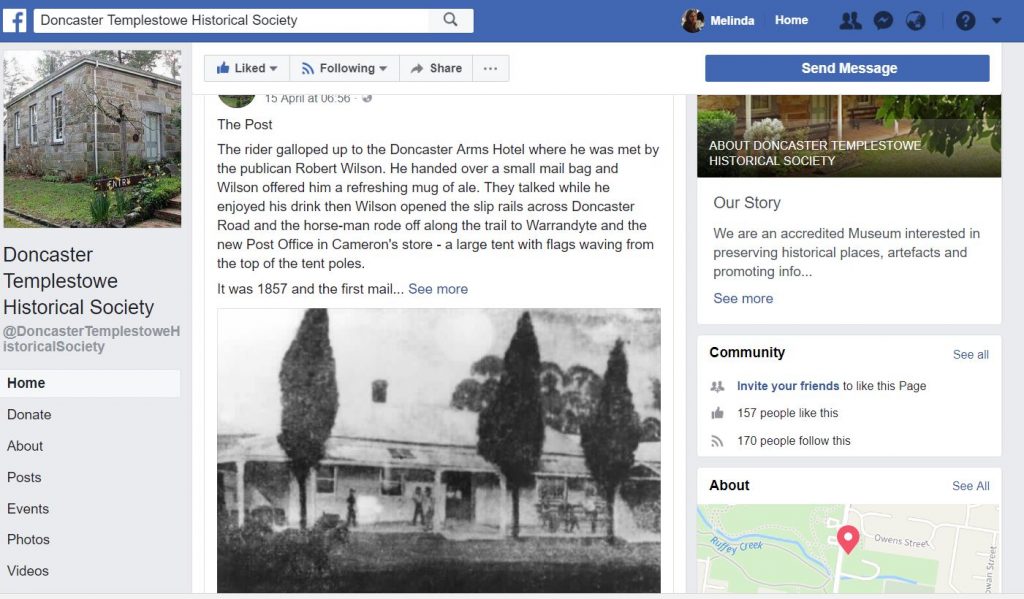
Facebook Groups
Using similar search terms, some examples of groups I’ve discovered include:
- Belfast Genealogy (closed group, 800+ members)
- Irish Genealogy (closed group, 15,000+ members)
- Ulster Clans of Ireland (closed group, 4,500+ members)
- Northern Ireland Ancestry (closed group, 4,600+ members)
- County Down Genealogy (closed group, 900+ members)
- Perth and Western Australia Genealogy (open group, 1,500+ members)
- Western Australian Pioneers and Settlers (closed group, 2,100+ members)
- Genealogy Tasmania Australia (public group, 900+ members)
- The Duncan, Cunningham and Negus Family connection (closed group, 26 members)
As you can see only the last one is limited to members researching one family tree (albeit difference branches of it). Many of the others are quite large, so even when it’s a closed group, you need to treat any information you share as being public to some extent. Note, also, how many groups use the term ‘genealogy’ as part of its name.

A Few Guidelines
Some of these groups are designed to help you with your personal roadblocks – you can post who you’re searching for and what information you already have, and someone will volunteer to help you locate them through archives they have access to. Other groups are more focused on sharing helpful links to other resources.
Be careful about requesting information from other group members that involve looking up paid subscriptions, in case it breaks the rule of that membership.
Be willing to reciprocate. If you’re asking others to help you, then be prepared to do the same for them when you can, even if it’s just joining in the conversation.
Start small. Once you start, there is so many pages and groups that it can overwhelm your newsfeed (which is not necessarily a bad thing!), but you may want to start with a particular aspect of your family tree to begin with. For example, I first explored the pages and groups relevant to my great grandmother who grew up on the West Australian goldfields.
Later, I began looking at those relevant to my other great grandmother who grew up in Belfast in Northern Ireland. I didn’t find anyone searching for the same ancestors, but because someone posted links to Irish Genealogy (with access to birth, deaths and marriages) and Belfast Cemetery (with access to burial records), I discovered evidence of a half-sister who was not in any photos or on family trees, and a father’s previous marriage.
Be patient. Although I celebrated finding that half-sister and previous marriage, that process took almost two years, before I found enough links and evidence that my suspicions were fact and no longer mere speculation.
Some places are more difficult than others. When I searched for links to Burmese heritage for a friend, I initially got a page about cats!
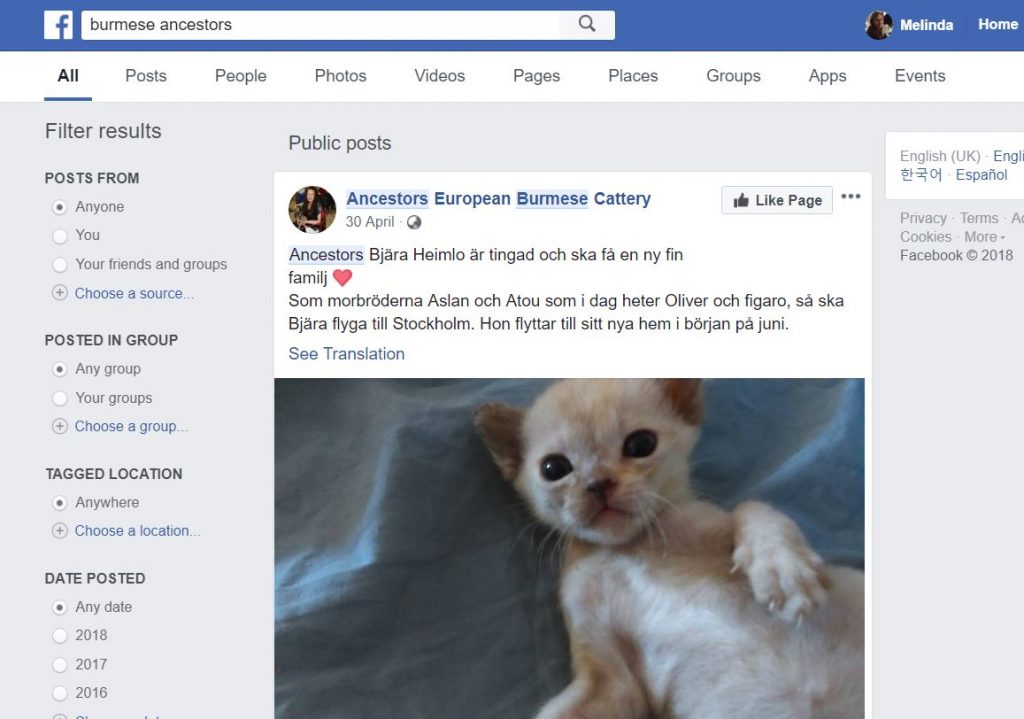
Then I found VHP Burmese Genealogy. Perfect, I thought, until I clicked a link to a web page – that no longer exists. Eventually, after a few more dead ends and detours, I came across Friends in British India (FIBIS), which includes Burma, and led to several interesting blogs and websites.
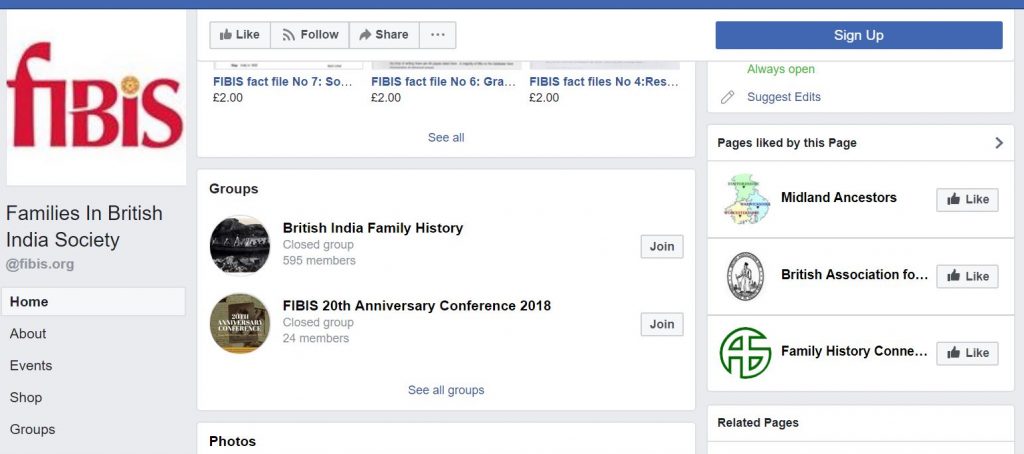
A few special mentions
There are a couple of Facebook pages I want to make special mention of, because the administrators of this group have made accessible a stack of other resource documents, or links to other online resources.
Australian Family History – online records and resources: this group has links to other online resources in the ‘files’ section.
Family History Help: you will again find a stack of resources in the ‘files’ section. The administrator of this group, Jan Miller says:
‘This page is called Family Help and was inspired with the desire to assist fellow family historians in their research, so I have put together information that may assist …’
This is just one example of the generosity I have experienced in this little corner of social media.
Lonetester HQ: Although Lonetester HQ does have a Facebook page, it is actually a blog (which I will discuss further in a future post), but I wanted to mention it because its author, Alona, has collated a free, downloadable list of Facebook related links for Australian family history research. It is currently 46 pages long, but it’s updated regularly.
As if that isn’t enough, Alona then provides a link to Katherine Wilson’s Worldwide Genealogy on Facebook list, which is enormous, with more than 11, 700 links.
Over to You
So what are you waiting for?
Get started: Brainstorm the phrases you could use when searching Facebook for pages and group that might be relevant to your family history search.
If you’re already active on Facebook, what pages or groups have you found particularly useful in your search?

